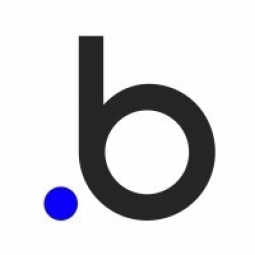下载PDF
Med Helper Now: Revolutionizing Home Healthcare Services with IoT
技术
- 应用基础设施与中间件 - 数据交换与集成
- 平台即服务 (PaaS) - 应用开发平台
适用行业
- 水泥
- 医疗保健和医院
用例
- 楼宇自动化与控制
- 篡改检测
服务
- 系统集成
挑战
Med Helper Now 是一个旨在将家庭医疗保健服务提供商与有需要的人联系起来的平台,面临着以小团队构建大型平台的挑战。联合创始人 Moazzam Khan 和 Nicole Harrison 拥有编码经验,但项目规模超出了他们的能力。他们需要一个能够为他们提供专业组件、数据集成和安全性,同时又具有成本效益和时间效率的解决方案。该平台需要满足两种类型的用户——服务提供商和服务用户——并为他们提供不同的功能。对于服务提供商来说,该平台需要验证许可证、管理预订和处理付款。对于服务用户来说,它需要促进预订、管理支付设置并实现与服务提供商的沟通。
关于客户
Med Helper Now 是一个将护士、物理治疗师、营养师等家庭医疗保健服务提供商与需要这些服务的客户/用户联系起来的平台。该平台允许服务提供商发布他们的服务,并允许用户搜索、预订、交流和支付这些服务。该平台迎合两类用户——服务提供商和服务用户——并为他们提供不同的功能。该平台由 Moazzam Khan 和 Nicole Harrison 共同创立,尽管他们有编码经验,但他们需要一个可以帮助他们用小团队构建大型平台的解决方案。
解决方案
联合创始人选择在无代码运动的领导者 Bubble 上构建他们的平台。 Bubble 的拖放元素、内置数据集成和安全功能使构建 Med Helper Now 的过程变得更加简单。它还提供电子邮件和支付系统集成、编写自定义插件的能力以及价格合理的托管服务。该平台旨在满足服务提供商和服务用户的需求。服务提供商可以通过专用仪表板进行注册、验证其许可证、管理其预订和付款。服务用户可以搜索提供商、预订服务、管理其支付设置以及通过仪表板与提供商进行沟通。该平台还通过 Bubble 的内置响应功能实现了移动响应。
运营影响
数量效益
相关案例.

Case Study
System 800xA at Indian Cement Plants
Chettinad Cement recognized that further efficiencies could be achieved in its cement manufacturing process. It looked to investing in comprehensive operational and control technologies to manage and derive productivity and energy efficiency gains from the assets on Line 2, their second plant in India.

Case Study
Hospital Inventory Management
The hospital supply chain team is responsible for ensuring that the right medical supplies are readily available to clinicians when and where needed, and to do so in the most efficient manner possible. However, many of the systems and processes in use at the cancer center for supply chain management were not best suited to support these goals. Barcoding technology, a commonly used method for inventory management of medical supplies, is labor intensive, time consuming, does not provide real-time visibility into inventory levels and can be prone to error. Consequently, the lack of accurate and real-time visibility into inventory levels across multiple supply rooms in multiple hospital facilities creates additional inefficiency in the system causing over-ordering, hoarding, and wasted supplies. Other sources of waste and cost were also identified as candidates for improvement. Existing systems and processes did not provide adequate security for high-cost inventory within the hospital, which was another driver of cost. A lack of visibility into expiration dates for supplies resulted in supplies being wasted due to past expiry dates. Storage of supplies was also a key consideration given the location of the cancer center’s facilities in a dense urban setting, where space is always at a premium. In order to address the challenges outlined above, the hospital sought a solution that would provide real-time inventory information with high levels of accuracy, reduce the level of manual effort required and enable data driven decision making to ensure that the right supplies were readily available to clinicians in the right location at the right time.

Case Study
Gas Pipeline Monitoring System for Hospitals
This system integrator focuses on providing centralized gas pipeline monitoring systems for hospitals. The service they provide makes it possible for hospitals to reduce both maintenance and labor costs. Since hospitals may not have an existing network suitable for this type of system, GPRS communication provides an easy and ready-to-use solution for remote, distributed monitoring systems System Requirements - GPRS communication - Seamless connection with SCADA software - Simple, front-end control capability - Expandable I/O channels - Combine AI, DI, and DO channels

Case Study
Driving Digital Transformations for Vitro Diagnostic Medical Devices
Diagnostic devices play a vital role in helping to improve healthcare delivery. In fact, an estimated 60 percent of the world’s medical decisions are made with support from in vitrodiagnostics (IVD) solutions, such as those provided by Roche Diagnostics, an industry leader. As the demand for medical diagnostic services grows rapidly in hospitals and clinics across China, so does the market for IVD solutions. In addition, the typically high cost of these diagnostic devices means that comprehensive post-sales services are needed. Wanteed to improve three portions of thr IVD:1. Remotely monitor and manage IVD devices as fixed assets.2. Optimizing device availability with predictive maintenance.3. Recommending the best IVD solution for a customer’s needs.

Case Study
HaemoCloud Global Blood Management System
1) Deliver a connected digital product system to protect and increase the differentiated value of Haemonetics blood and plasma solutions. 2) Improve patient outcomes by increasing the efficiency of blood supply flows. 3) Navigate and satisfy a complex web of global regulatory compliance requirements. 4) Reduce costly and labor-intensive maintenance procedures.






